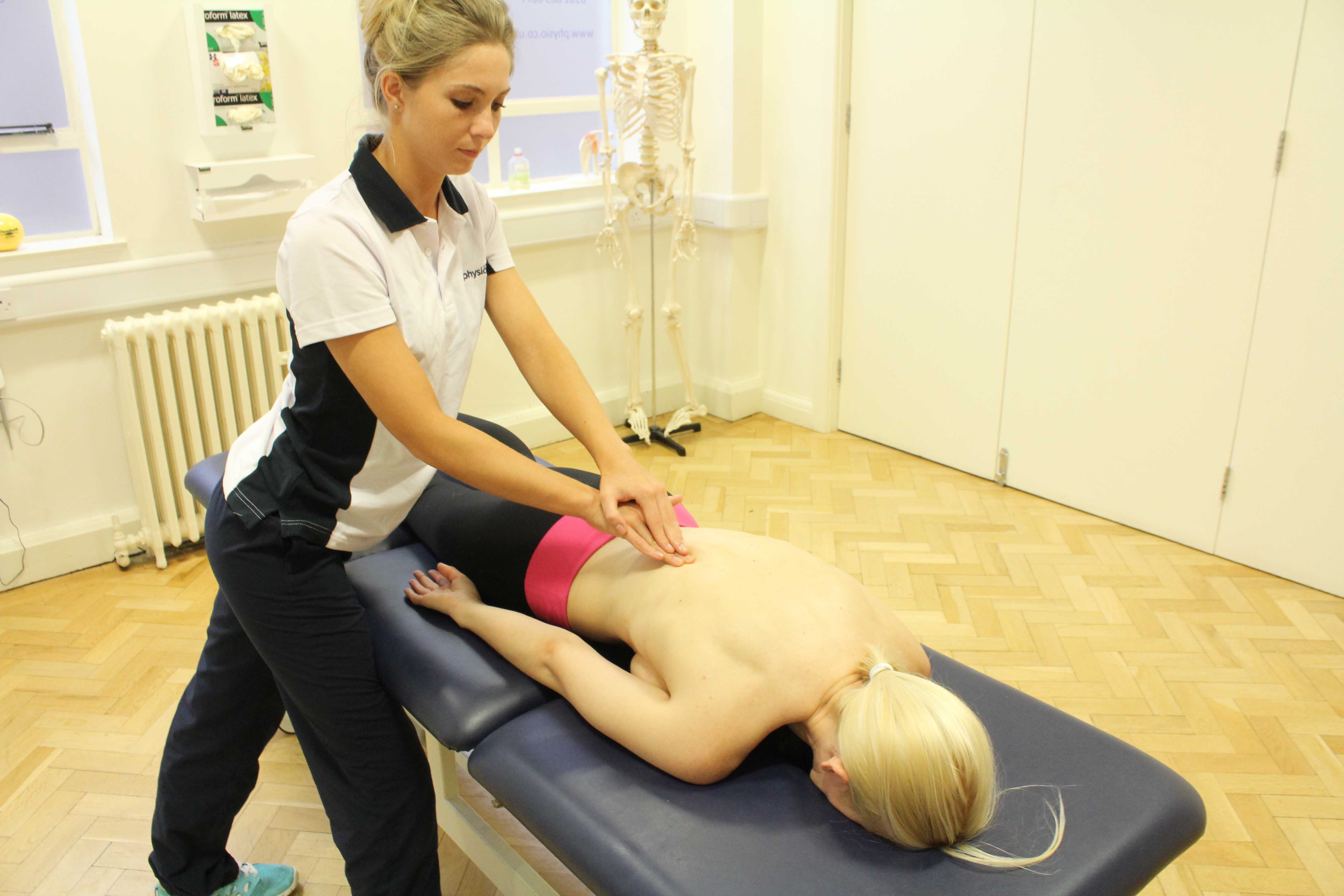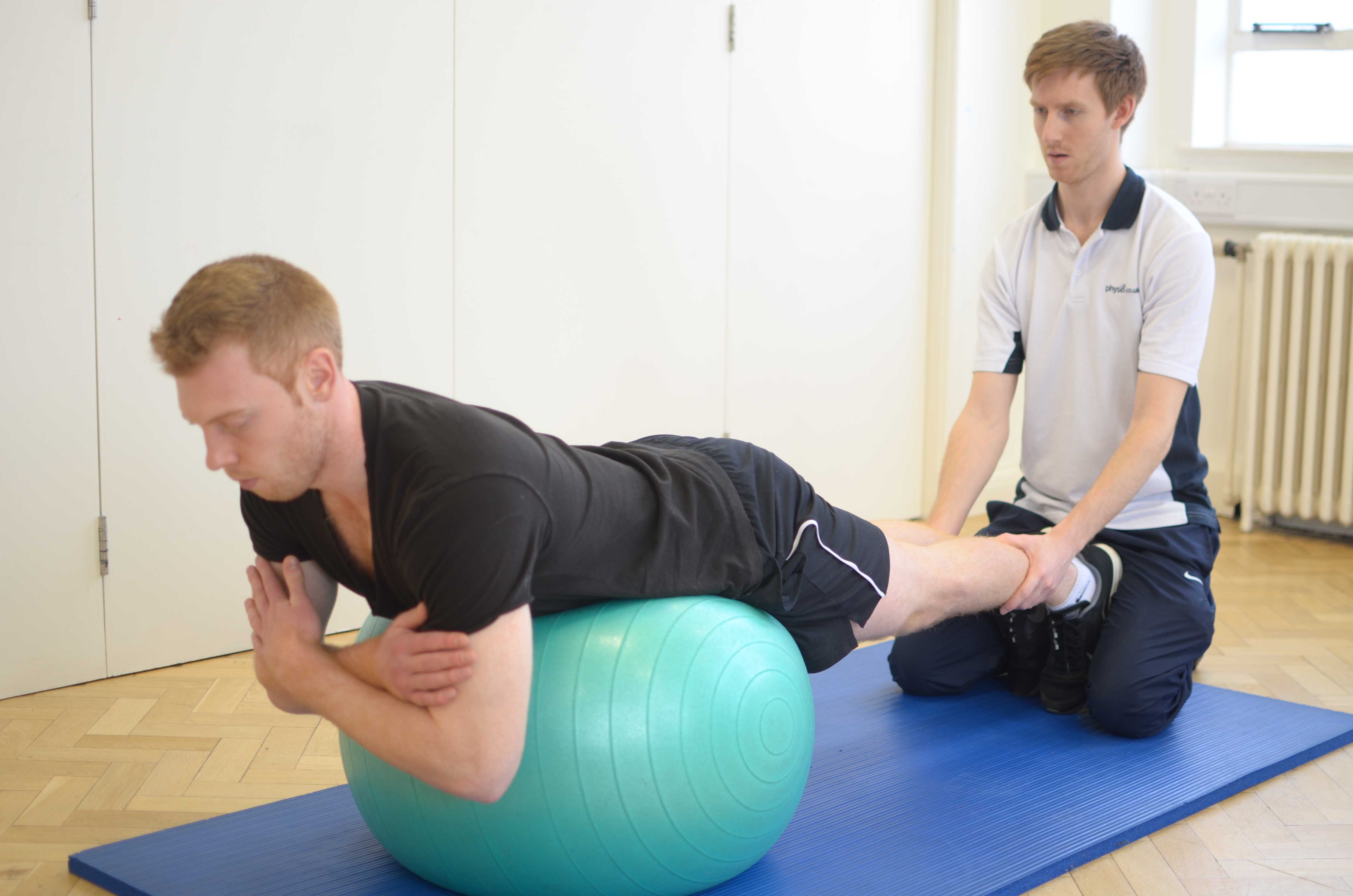What is whiplash?
A whiplash injury to the neck (also known as an acceleration/deceleration injury) is an injury to any of a number of structures in the neck as a result of the head being thrown forwards and backwards with force. Physiotherapy can successfully treat symptoms of whiplash.
 Above: Mobilisation perfomed by therapist on the cervical vertebre to releive nerve impingement
Above: Mobilisation perfomed by therapist on the cervical vertebre to releive nerve impingementHow does whiplash happen?
A whiplash injury to the neck is commonly caused by road traffic accidents and also in contact sports. In most instances the head is either violently thrown forwards or backwards due to an impact causing injury to the structures in the neck.
 Above: Passive stretch applied to trapezius muscle by therapist
Above: Passive stretch applied to trapezius muscle by therapistWhat are the symptoms of whiplash?
Typically there is little or no pain at the time of injury. There is normally a gradual increase in the intensity of the pain over the following 2–3 days. Pain is usually felt in the neck, and sometimes in the head, shoulders and arms. This can be a dull ache or a sharp pain which is made worse by movement. Other symptoms include:
 Above: Soft tissue massage of the trapezius muscle to relieve stiffness and pain in the neck
Above: Soft tissue massage of the trapezius muscle to relieve stiffness and pain in the neckWhat should I do if I have a whiplash injury?
Whiplash injuries generally do not get better without the assistance of a physiotherapist. You should arrange an appointment as soon as possible after your accident.
Physiotherapy treatment for a whiplash injury.
Physiotherapy treatment is extremely important in the treatment of a whiplash injury. Initially, your physiotherapist will diagnose your injury and determine its severity. From the assessment they will be able to develop an appropriate treatment plan. Treatment may initially involve techniques to reduce your pain and increase the range of movement in your neck. Physiotherapy may include:
Could there be any long-term effects from a whiplash injury?
Mild and moderate whiplash injuries do not normally produce any long-term effects, providing that it is properly diagnosed and appropriately treated. Recovery in mild and moderate case usually takes place in matter of weeks or months. A severe case, however, can occasionally lead to degeneration of the discs in the neck and joint damage, resulting in long-term restrictions and pain.
 Above: Experienced physiotherapist performing mobilisations on the cervical vertebrea to relieve stiffness and any nerve impangement
Above: Experienced physiotherapist performing mobilisations on the cervical vertebrea to relieve stiffness and any nerve impangementTo arrange a physiotherapy assessment of your neck call Physio.co.uk on 0330 088 7800 or book online.

 0330 088 7800
0330 088 7800

































